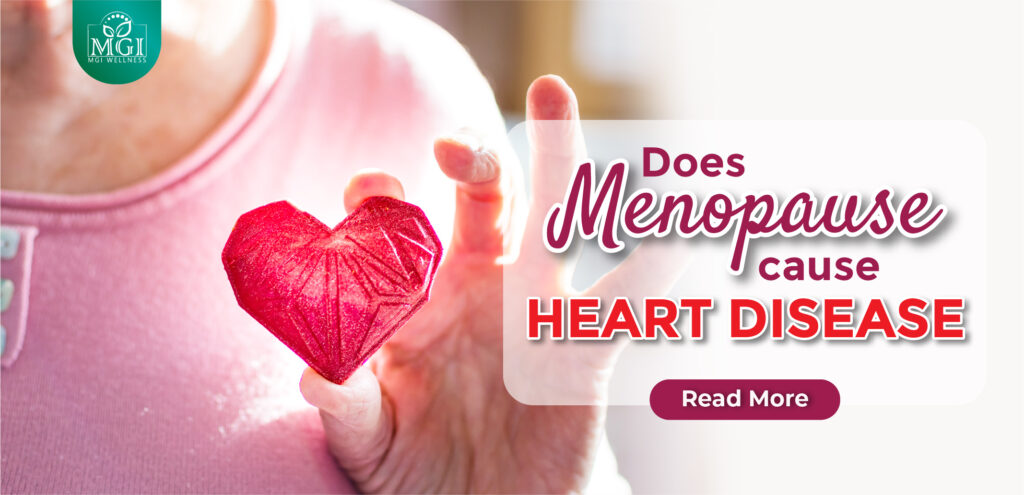Wellness
Does Menopause Cause Heart Disease?
Menopause begins one year after a woman has her last menstruation and usually happens after the age of 45. Due to the fluctuation of the estrogen hormone, a number of physical and psychological symptoms can occur, which varies from person to person. The most common symptoms are hot flashes, night sweats, vaginal dryness, fatigue, sleep problems, and mood swings. Besides these problems, there are other health risks which may occur after menopause, one of them being heart diseases.
Menopause and heart disease risk
Before menopause, women tend to have a lower risk of developing heart diseases due to the estrogen hormone. When estrogen drops due to menopause, it can lead to higher homocysteine levels, which is one of the main risk factors of heart diseases. (1,2) This can also affect the elasticity of the blood vessels, increase cholesterol levels, and thus, increasing the risk of heart diseases. (3)
Besides that, the age when menopause occurs can also affect the risk of heart diseases. (4,5) According to a multi-ethnic study on atherosclerosis, a condition in which fat and cholesterol builds up inside the blood vessels, early menopause (menopause at an age below 46 years) causes a 2-fold increased risk of heart disease or stroke. (5)
How to keep your heart healthy after menopause
- Eat more fruits and vegetables
- Nuts and seeds such as chia seeds and almonds are a good source of healthy fats. Eating one handful daily provides benefits to the heart.
- Limit intake of fats and oils such as cooking oil, margarine, and butter to 3 teaspoons per day
- Limit salt intake to 1 teaspoon per day
- Be active as many ways you can. Exercise at least 30 mins daily
References:
- van Dijk G, Kavousi M, Troup J, Franco O. Health issues for menopausal women: The top 11 conditions have common solutions. Maturitas. 2015;81(1):151.
- Gambacciani M, Mannella P. Homocysteine, menopause and cardiovascular disease. Menopause International. 2007;13(1):23-26.
- Lisabeth L, Bushnell C. Menopause and Stroke: An Epidemiologic Review. Lancet Neurol. 2012;11(1):82-91
- El Khoudary SR, Aggarwal B, Beckie TM, Hodis HN, Johnson AE, Langer RD, et al. Menopause transition and cardiovascular disease risk: Implications for timing of early prevention: A scientific statement from the American Heart Association. Circulation. 2020;142(25).
- Wellons M, Ouyang P, Schreiner PJ, Herrington DM, Vaidya D. Early Menopause predicts future coronary heart disease and stroke. Menopause. 2012;19(10):1081–7.

